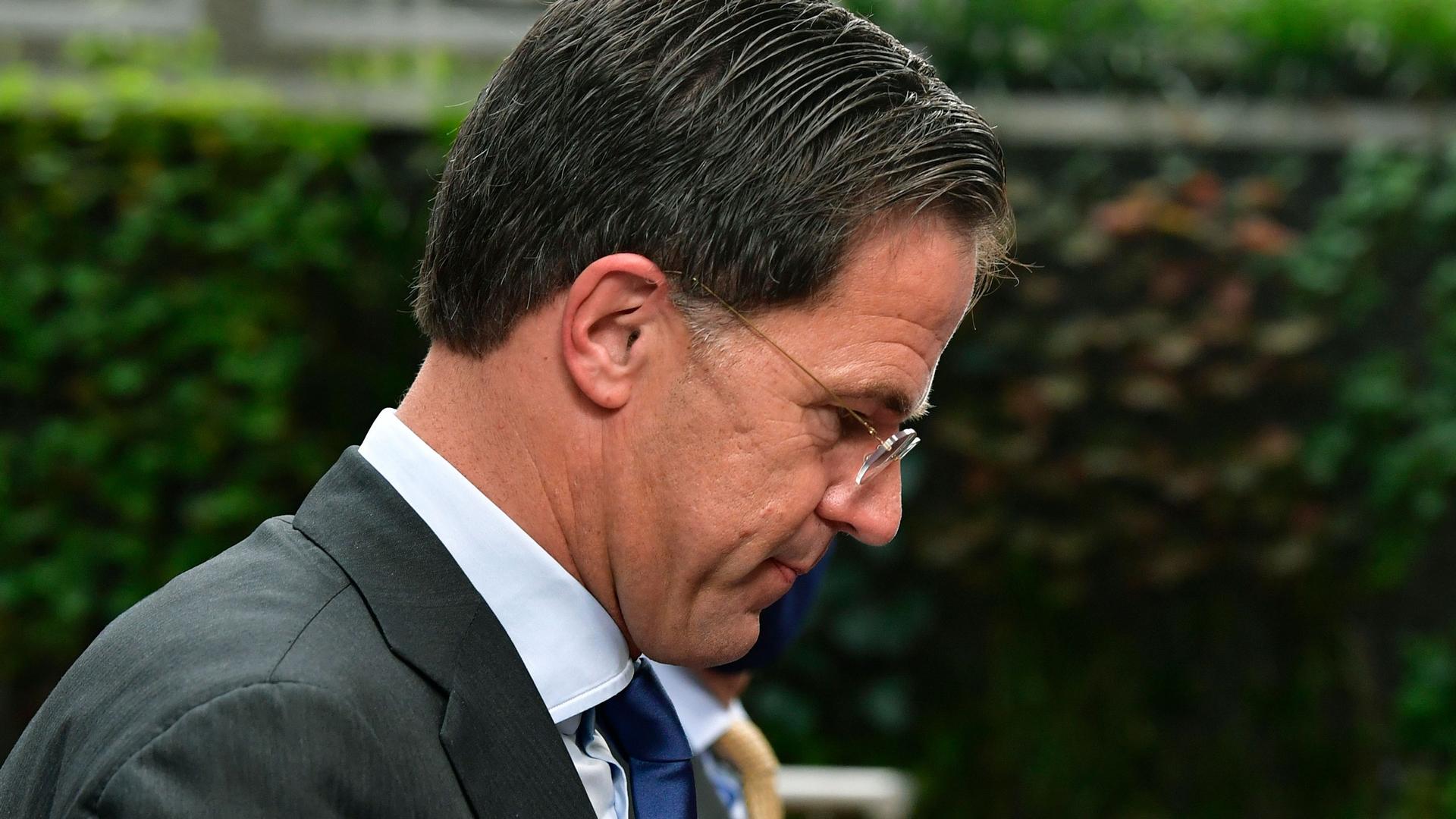Dutch government resigns over child welfare scandal
Netherlands’ Prime Minister Mark Rutte arrives for an EU summit at the European Council building in Brussels, July 2020.
In a nationally televised speech on Friday, Dutch Prime Minister Mark Rutte and his entire Cabinet resigned to take political responsibility for a scandal involving investigations into child welfare payments that wrongly labeled thousands of parents as fraudsters.
Rutte said he had informed King Willem-Alexander of his decision and pledged that his government would continue work to compensate affected parents as quickly as possible and to battle the coronavirus.
“We are of one mind that if the whole system has failed, we all must take responsibility, and that has led to the conclusion that I have just offered the king, the resignation of the entire Cabinet,” Rutte said.
The move was seen as largely symbolic; Rutte’s government will remain in office in a caretaker mode until a new coalition is formed after a March 17 election in the Netherlands.
The resignation brings to an end a decade in office for Rutte, although his party is expected to win the election, putting him first in line to begin talks to form the next government. If he succeeds in forming a new coalition, Rutte would most likely again become prime minister.
The Netherlands is the third European country thrown into political uncertainty this week in the midst of the coronavirus crisis. In Estonia, the government resigned over a corruption scandal, while Italian Premier Giuseppe Conte’s governing coalition is at risk of collapse after a small partner party withdrew its support.
Rutte said earlier this week that his government would be able to keep taking tough policy decisions in the battle against the coronavirus even if it were in caretaker mode. The Netherlands is in a tough lockdown until at least Feb. 9, and the government is considering imposing an overnight curfew amid fears about new, more contagious variants of the virus.
“To the Netherlands I say: Our struggle against the coronavirus will continue,” Rutte said.
On Thursday, the leader of the Dutch opposition Labor Party stepped down because he was minister of social affairs in a governing coalition led by Rutte when the country’s tax office implemented a tough policy of tracking down fraud with child welfare.
Lodewijk Asscher’s decision put further pressure on Rutte ahead of Friday’s Cabinet meeting. Ministers were to decide on their reaction to a scathing report issued last month, titled “Unprecedented Injustice,” that said the tax office policies violated “fundamental principles of the rule of law.” The report also criticized the government for the way it provided information to parliament about the scandal.
Many wrongfully accused parents were plunged into debt when tax officials demanded repayment of payments. The government has in the past apologized for the tax office’s methods and in March earmarked 500 million euros ($607 million) to compensate more than 20,000 parents.
One of those parents waited near parliament as the Cabinet met and said she wanted it to resign.
“It’s important for me because it is the government acknowledging, ‘We have made a mistake and we are taking responsibility,’ because it’s quite something what happened to us,” Janet Ramesar told The Associated Press.
Rutte plans to lead his conservative People’s Party for Freedom and Democracy into the March election, and polls suggest it will win the most seats. That would put Rutte, who has been in office for a decade at the head of three different coalitions, first in line to attempt to form the next ruling coalition.
Deputy Prime Minister Kajsa Ollongren, who serves as interior minister, said as she entered Friday’s meeting that “it is very important to be accountable and also to show responsibility in the political sense, and we are going to talk about that in the Council of Ministers today.”
By Mike Corder/AP
